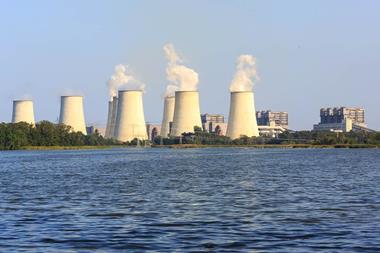The Financial Conduct Authority (FCA) has included a proposal from Carbon Tracker and ClientEarth for an ‘atmospheric viability test’ on fossil fuel reserves as a new risk assessment disclosure in its revision to the IPO prospectus rules.
The UK’s financial watchdog recently launched a consultation asking for views on whether companies seeking an IPO, including oil and gas firms, should be required to disclose their climate risks and transition plans to ensure they align with official net-zero climate scenarios.

If the climate NGO’s proposal goes ahead, the result will mean that for the first time, companies raising money through London’s bond and equity markets would have to explain why they believe their fossil fuels reserves would be scientifically consistent with the goals of the Paris climate agreement, along with the existing tests around demand expectations and financial validity.
This means that the company’s consumption needs to be consistent with carbon budgets, aligned with 1.5°C goals and would need to be appraised by a qualified climate expert.
Financial markets play a crucial role in addressing climate change, and improving regulations for fossil fuel companies is key. However, there is currently a discrepancy between financial market regulations and the Paris Agreement, according to Carbon Trackers’ founder, Mark Campanale, who highlighted the importance of incorporating climate constraints into investment strategies.
Speaking to IPE, Campanale said that the third proposed test on atmospheric viability must have equal standing with the existing geological and financial tests required of fossil fuel companies.
He said: “There is a huge contradiction between oil and gas companies’ reserves and the goals of the Paris Agreement. Looking at listed companies alone, such as Chevron and BP, there are five times more reserves than is required to stay within the goals of the Paris Agreement.”
Another key issue Campanale highlighted is the fact that the Society of Petroleum Engineers (SPE), which acts as an industry standard setter, does not take climate change into account when assessing reserves.
“When you ask the UK regulator what is the piece of regulation that explains the relationship between the FCA and a standard setter like the SPE, they say that there is no regulation and everything has been done by convention,” Campanale added.
Greenwashing
The consultation comes at a time when regulators, as well as corporations, are being pulled into the spotlight when it comes to potential greenwashing claims.
Last year, ClientEarth sought the High Court’s permission to pursue a judicial review of the FCA’s decision to approve Ithaca Energy’s prospectus. This is because, the NGO claimed, the prospectus failed to adequately describe the climate-related risks faced by the company as required by law.
In addition to the new proposal, the climate-related disclosure requirements would be aligned with categories common to frameworks such as the Taskforce on Climate-Related Financial Disclosures recommendation and International Sustainability Standards Board standards.
Submissions for comment on the proposals are open until 18 October.
Read the digital edition of IPE’s latest magazine























